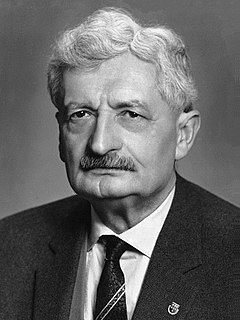A Quote by Konstantin Tsiolkovsky
Man must at all costs overcome the Earth's gravity and have, in reserve, the space at least of the Solar System.
Related Quotes
In the first place a philosophical proposition must be general. It must not deal specially with things on the surface of the earth, or within the solar system, or with any other portion of space and time. . . . This brings us to a second characteristic of philosophical propositions, namely that they must be a priori. A philosophical proposition must be such as can neither be proved nor disproved by empirical evidence. . . . Philosophy, if what has been said is correct, becomes indistinguishable from logic as that word has now come to be used.
We have one planet in our solar system that's habitable, and that's the Earth, and space travel can transform things back here for the better. First of all, by just having people go to space and look back on this fragile planet we live on. People have come back transformed and have done fantastic things.


































